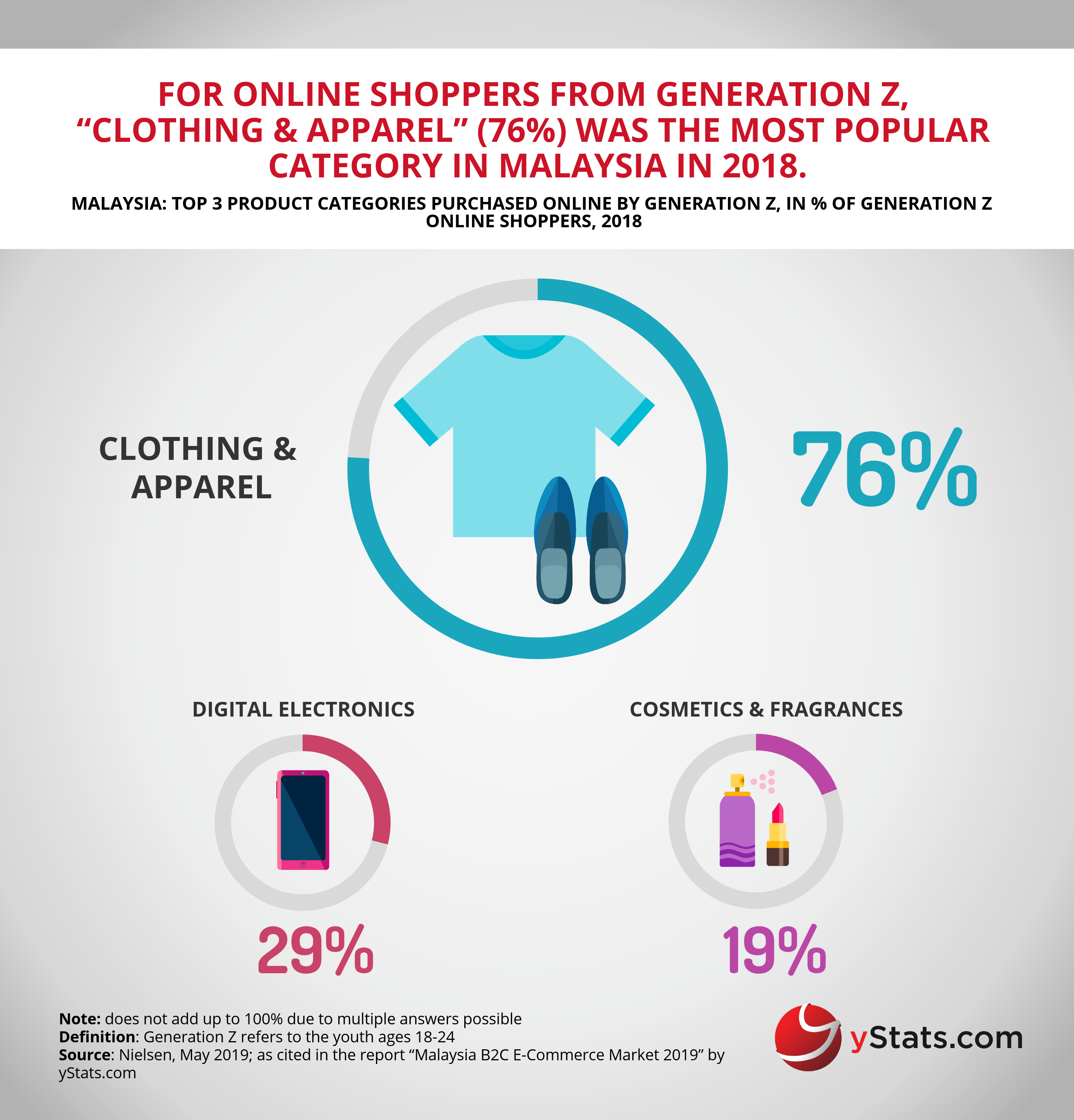Germany-based secondary market research firm yStats.com has released a new publication titled “Malaysia B2C E-Commerce Market 2019”. The report reveals the current online trends in Malaysia and includes a prediction of further sales growth through 2025. Mobile shopping, cross-border and social commerce are the top trends. The report also covers the current state of competition on the Malaysian B2C E-Commerce scene.
Malaysia to keep its strong position on the retail E-Commerce market in Southeast Asia
Malaysia is one of the fastest growing and largest B2C E-Commerce markets in Southeast Asia. More than half of Internet users in Malaysia used E-Commerce platforms to shop and sell online in 2018, with online shopper penetration rates varying between regions. With one of the highest Internet and mobile penetration rates in the region, online retail has the potential to outpace brick-and-mortar sales growth in the near future. Many sources predict retail E-Commerce sales in Malaysia to continue at an annual double-digit growth rate through 2025.

Mobile shopping and social commerce are on the thrive in Malaysia
With growing Internet penetration rates overall, driven by smartphone being by far the mostly used device to go online in 2018, it is no surprise that M-Commerce is an important trend on the online retail market in Malaysia. Mobile devices were used by almost 6 in 10 of Malaysian Internet users to purchase online in February 2019, leaving laptop and desktop computers behind. Another important trend is social commerce with a significant number of social media shoppers choosing WhatsApp or Facebook Groups, among others, to shop online. Another trend is cross-border shopping. Over half of Malaysian online shoppers made international purchases, according to a 2018 survey referenced in the yStats.com report.
Despite the strong market leadership of Lazada and Shopee, Malaysia’s online retail market is attracting international players
Malaysia’s leading online shopping platforms are online retailers and marketplaces Lazada and Shopee. In the course of the current year, both E-Commerce players have been battling for the highest number of monthly website visits. While trying to attract more visitors, they have both been working on expanding their product and service palette. Despite the strong control of the Malaysian E-Commerce market by these two leading players, international companies demonstrate their interest in entering the market. As a result, Indonesia’s E-Commerce platform Bukalapak launched in 2019 in Malaysia. Given the significant role of mobile shopping in Malaysia, mobile shopping apps are a strong indicator of merchant popularity. Lazada was the top choice by consumers, followed by apps of Shopee, Taobao, 11street and AliExpress.


